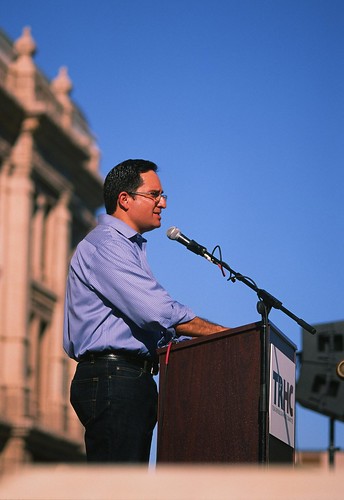here is an interesting post on marriage; its characteristics and its purposes. what do you think?
here is a bit to get you started:
The call for same-sex marriage involves a similar misdefinition. Marriage is often characterized today as follows: 1) two people 2) who love each other 3) want to perform sexual acts together, so 4) they consent to combine their lives sexually, materially, economically 5) with the endorsement of the community. Since same-sex couples can meet the first four criteria, how can society refuse the fifth?
It is easy to see why this would be a cause of aggravation, not only for same-sex couples who wish community endorsement of their relationships, but for millions of others. If the criteria stated above actually define marriage—and in contemporary Western society, many have come to view marriage as no more than this—then refusal to acknowledge and endorse same-sex relationships is a rank injustice, nothing but an exercise in bigotry or stupidity.
now read this piece by Ken Herman and tell him why he’s wrong, if you can.
again a tease to get you over there:
I’m sure I’m wrong on this but I’m not sure why.
Resolved: If a homosexual legally can marry the same-sex love of his or her life, then a polygamist should be able to legally marry the any-sex loves of his or her life.
It’s a notion posited by slippery-slopers who fear legalized same-sex marriage leads to legalized polygamy. I think they might be on to something, but I’m still sure I’m wrong.
Now think a minute. if marriage is only supposed to be the highest and best expression of romantic love, then why can’t any two or more adults who love each other get married? adult siblings? adult nieces and nephews with their aunt or uncle? adult child with their parent? why not?
as Ken Herman says:
But, legalities aside, if you believe same-sex marriage is OK, that everybody should be allowed to marry whomever they want, then what’s your argument against polygamy?
And please be careful not to use anything, such as religion or creepiness, that sounds like arguments used against same-sex marriage. This might be a bit trickier than you’d think.
so legalities aside and without invoking religion or creepiness, why is the “slippery slope” argument a bad argument in the defense of traditional marriage?
Here is a liberal anthropologist’s answer from my blog a couple of years ago. And here is my post a year ago about polyamory being on the way.
what do you think? how does that compare to the answer given by Stephen Heaney in the first article excerpted above?














